Facilities
The state-of-the-art health innovation centre is led by technological advances in healthcare and offers a rich facility with the very best in simulated learning and access to higher education.
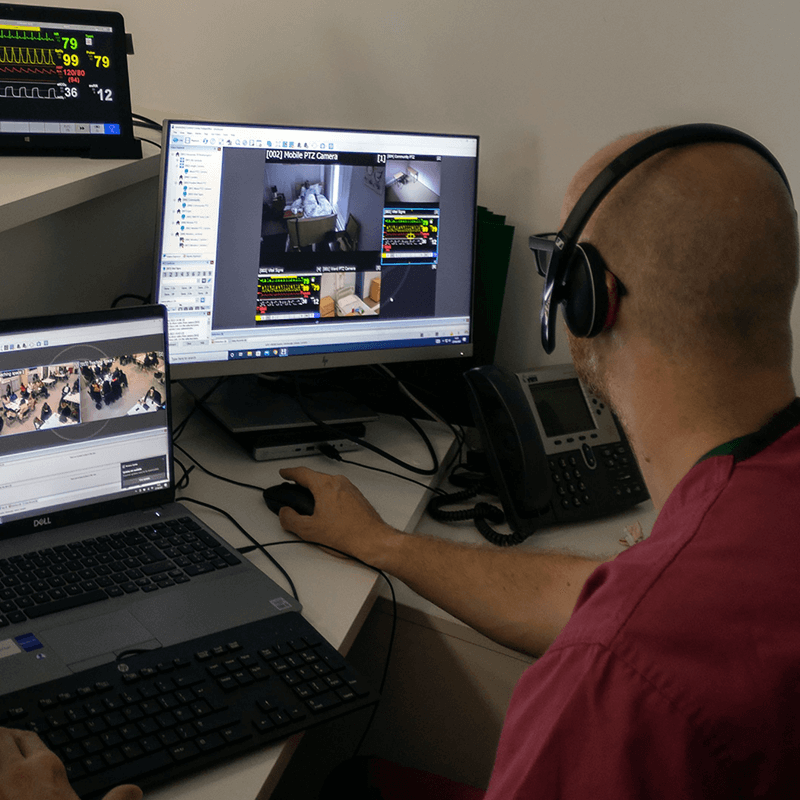
Scotia Medical Observation and Training (SMOT) system
The Scotia Medical Observation and Training (SMOT) system is a video-assisted simulation technology that allows lecturers to demonstrate the process of healthcare effectively and use video to relay footage on to monitors within a simulated environment.
Students will also have the option to record videos of themselves and create digital captures of their performance. This will allow students to reflect and debrief on what they have done, an essential part of teaching within a simulated environment.
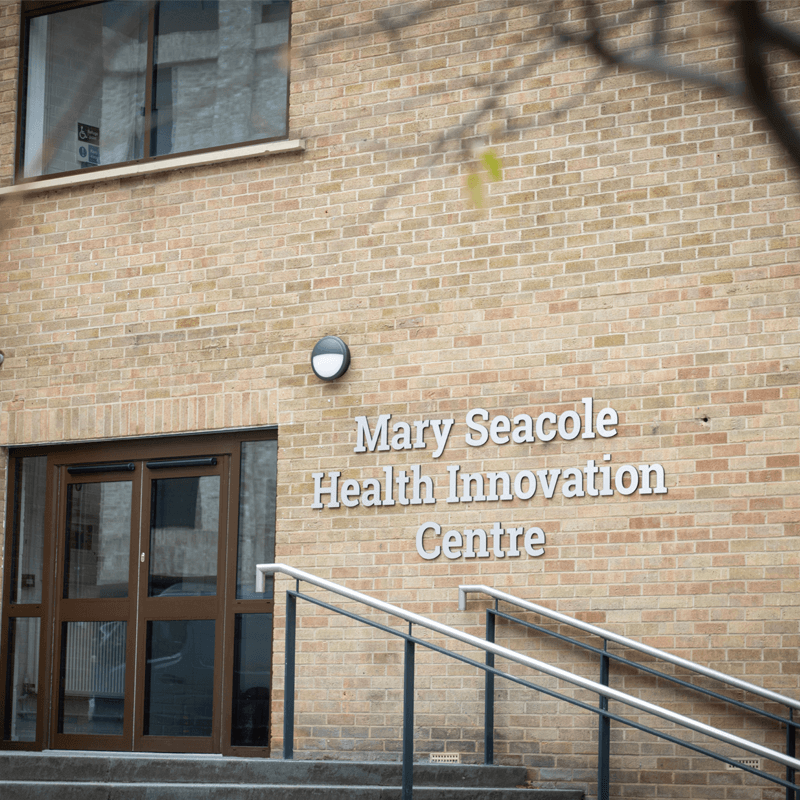
Editing Booths
Editing Booths help enable the use of technology to support flexible provision in teaching and learning. Specifically in the post Covid-19 environment where digital and telehealth becomes a permanent feature in the way healthcare professionals interact with patients.
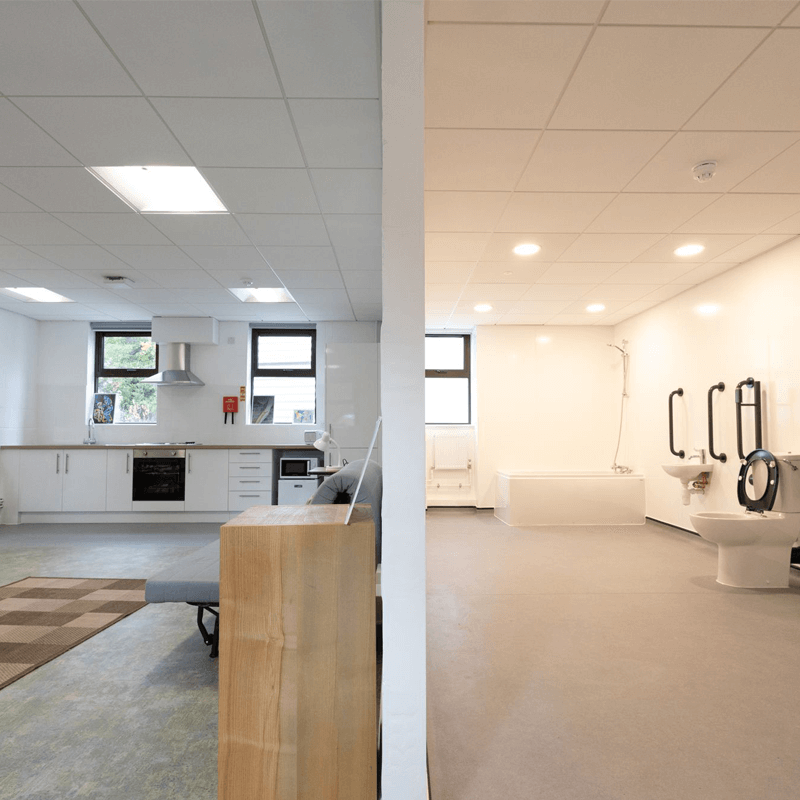
Clinical Grade Flooring
The facility uses clinical grade flooring that helps protect from spillages such as simulated blood or urine and supports the mimicking of real-life hospital environments.
Simulated Apartment
A simulated apartment which includes a fixed bathroom, bedroom, kitchen and living room that emulates the community-based environments which all primary and community healthcare professionals may encounter in their day to day working life. This aims to provide environments central to the teaching and learning of activities of daily living required by those working in the community.
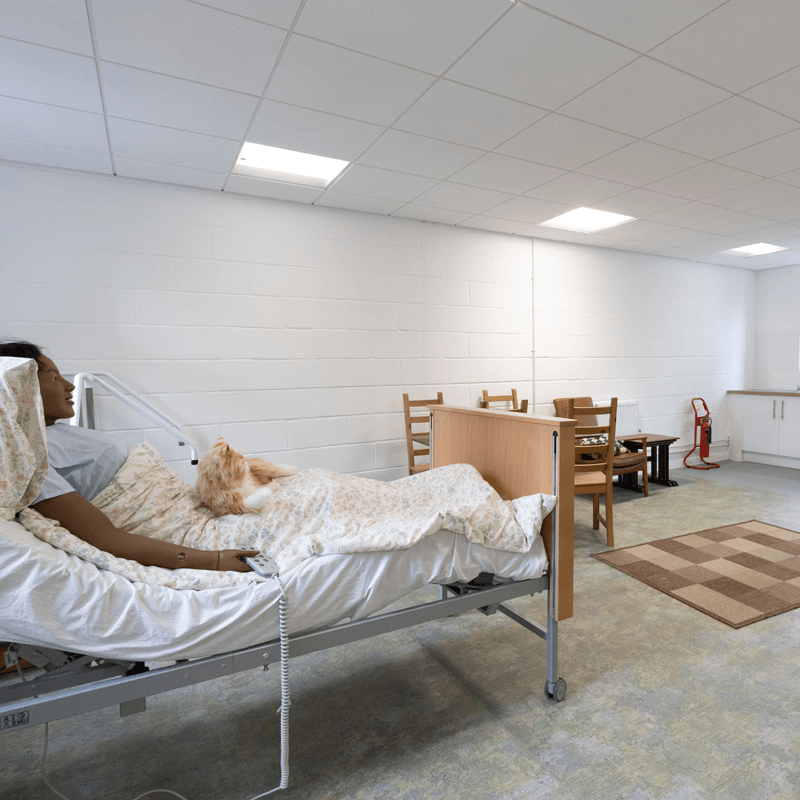
Semi-fixed Plinth Suites
Semi-fixed Plinth Suites help to simulate the treatment that can be offered by physiotherapists and can be folded down and stored away to offer other use of space as required.
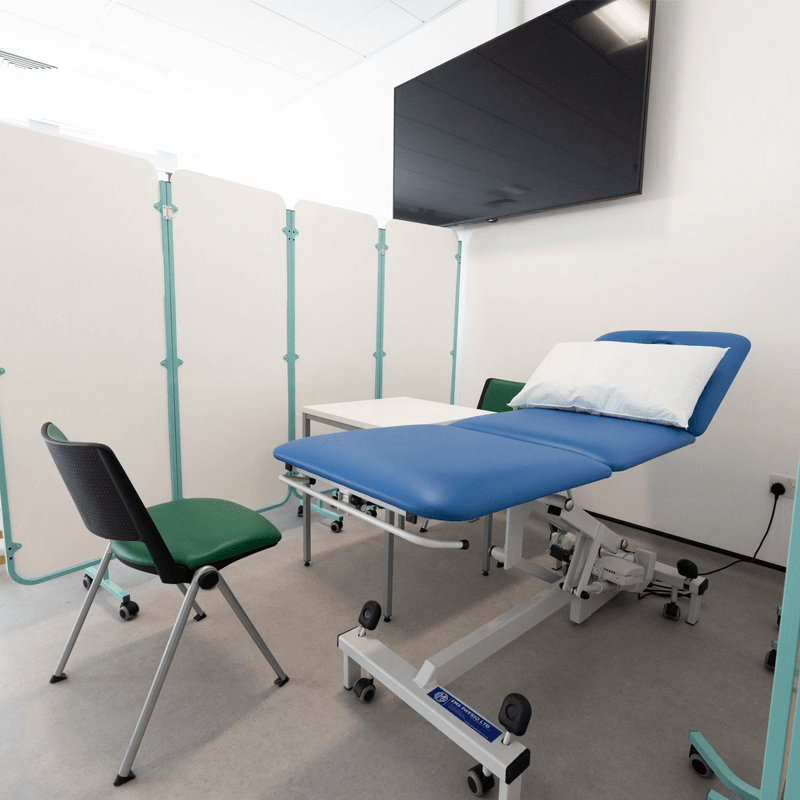
Open Access Outside Timetable
The Mary Seacole Health Innovation Centre will enable students to practice simulated activities in their own time outside of normal timetabling hours, including evenings and weekends.
These simulations will be designated to be safe for students and their peers to take part in without supervision.
The use of specialist facilities outside of the usual timetabled hours offers the flexibility for students to study and learn at a time which suits them.
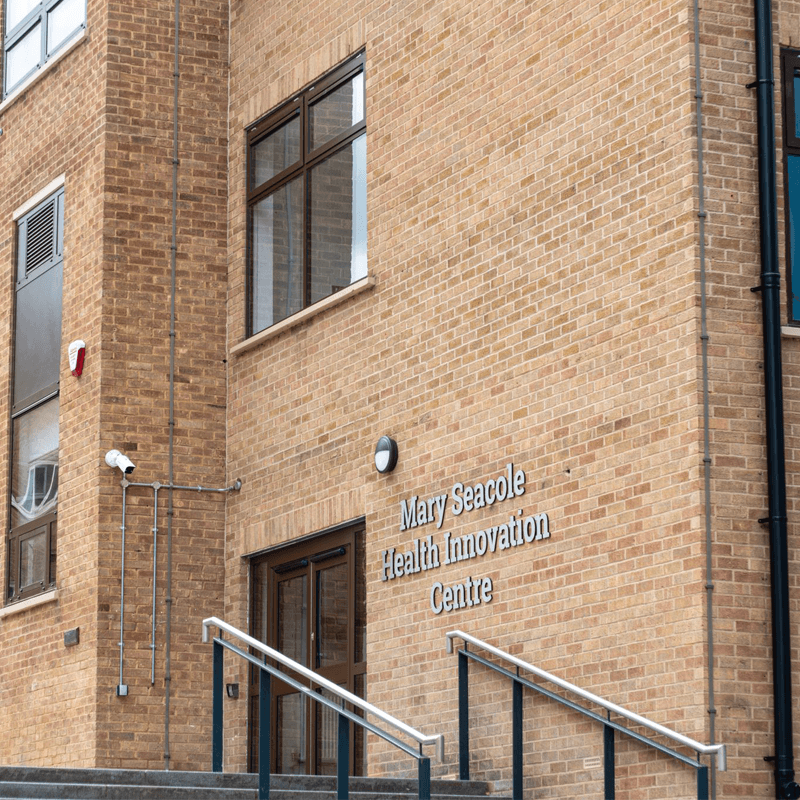
Partners
The Mary Seacole Health Innovation Centre has been made possible and is supported by several external partners including:
- Croydon Health Services
- Epsom and St Helier University Hospitals
- St George’s University Hospitals
- Kingston Hospital
- Sutton Health and Care
- Your Healthcare
- Central London Community Health
- Southwest London and St George’s Mental Health
- Surrey and Borders Partnership and CCGs
Mary Seacole
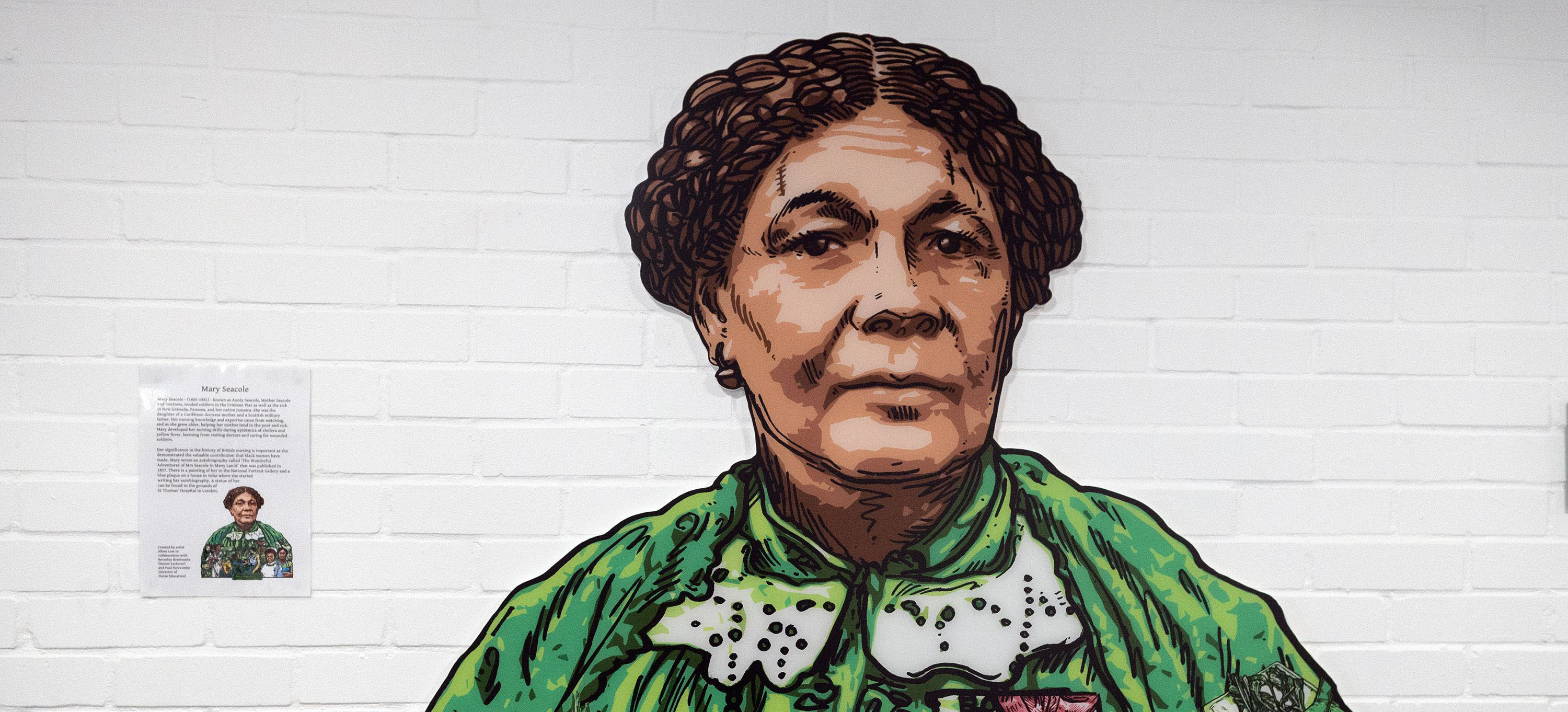
Mary Seacole was a British-Jamaican nurse, known for her feisty, fearless, and humorous traits who played a fundamental role supporting British soldiers during the Crimean War.
Mary’s compassionate nature, dedication to supporting and encouraging people, and her passion for the use of evidence-based decision-making means that her values align well with that of the University of Roehampton.
Mary resisted against social norms and fought to overcome barriers of age, race, and class to achieve her ambitions. Her ability to persevere during turbulent times and foster a sense of community are values we see amongst our healthcare students as they progress through their course.
The Mary Seacole Health Innovation Centre bears a mural, painted by Alban Low, which portrays her likeness alongside images of her caring for British soldiers and the medals she received for doing so.
